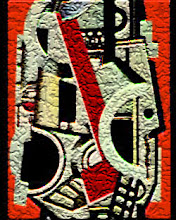Brave New World (The Star)
25 August 2011
It is easy to talk of proper procedure and fair trial when emotions are not brought into the picture. But in extreme cases, it is much harder to rationally hold on to such principles.
_________________________
I REMEMBER watching a BBC interview with Muammar Gaddafi many years ago.
It was the weirdest thing. In the middle of the interview, he broke wind with such vigour and volume that it was captured by the microphone.
Whether this was a case of uncontrollable gas or whether it was his way of showing contempt for the BBC, I have no idea.
How times have changed.
At the time of writing, the whereabouts of Gaddafi is unknown.
It does look like it is the end of the line for him and his regime.
I know that there are many Libyans who are of the strong opinion that he is guilty of many crimes against his own people.
From watching the interviews on TV, there is an overwhelming sense that there is a thirst for justice.
This is very understandable. Just as it is understandable that the people of Norway, for example, are desperate to see justice done against that lone right-wing gunman who mowed down and blew up so many innocent lives.
The tricky part here is separating justice from vengeance.
And this is where it gets hard.
It is easy to talk of proper procedure and fair trial when emotions are not brought into the picture.
But in extreme cases, be it a dictator who ruled with an iron fist for decades, or an evil individual with automatic weapons killing innocent young people, it is much harder to rationally hold on to such principles.
When something bad has been done to us, the urge to do all in our power to wreak retribution on those who have wronged us can become overwhelming.
It is imperative to try to remember the principles of justice and fairness that all civilised peoples adhere to during such times.
It would be a shame if the people of Libya, on the dawn of a new era, begin their fresh start with vengeance replacing justice.
It would be a blemish on the years of peaceful adherence to the rule of law in Norway, if they do not treat such a monster with the same kind of procedural and evidentiary fairness as they treat every one else.
It is easy to talk of justice.
But the true test arises only when we have to make sure that even the despised receive it without vengeance clouding our judgment.
If we can do that, only then can we claim to be living up to the civilised behaviour we aspire to.
Thursday 1 September 2011
Subscribe to:
Posts (Atom)
